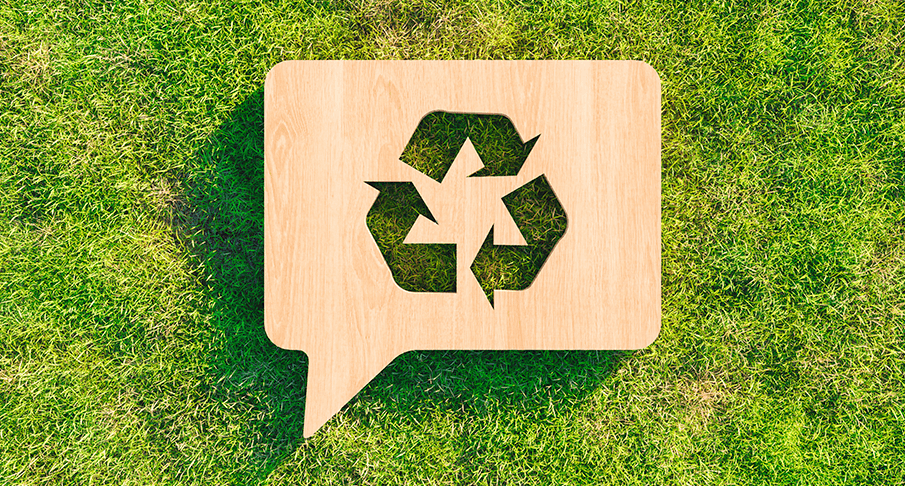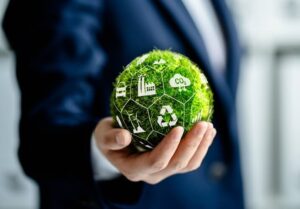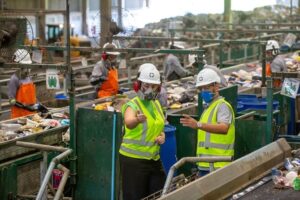
The recycling process allows the raw material and inputs used in the production of consumer goods to be reintroduced into the production cycle, this reduces the need to use new resources, thus protecting the reserves of natural resources and consequently mitigating the impact process environment.
One of the incentive tools recently made available to favor the valuation of recycling in the waste life cycle are the Recycling Credits, they can be generated by several actors in this cycle such as environmental agents, cooperatives, associations or companies that act in the destination and segregation of waste.
Since the approval of the National Solid Waste Policy (PNRS) in 2010, some very important guidelines have been established, for example: resolutions that enableintegrated waste management solutions, making the generator responsible for the waste produced, recommending the use of reverse logistics, shared responsibility between the private sector, public authorities and civil society with waste management, among others. In the approval of the PNRS then, quite transformative environmental protection goals had already been established, however, their effective implementation took some time.
Since then, very little progress has been made in practical aspects, taking into account the urgency of the waste issue and the fact that 12 years have passed since the approval of the PNRS. Despite being a milestone of progress in waste management in Brazil, the law did not define more specifically ways to achieve these goals, this created a gap where it can be noted the lack of instruments and tools that would make their implementation feasible. practice.
In order for the environmental preservation objectives established by the PNRS to be met, it was then necessary to create some instruments and tools that would enable their adaptation to the country’s reality.
Approved in January 2022, Federal Decree 10,936 regulates the PNRS, replacing some older legislation and establishing innovations regarding reverse logistics through the National Reverse Logistics Program. This tool created a framework of more specific guidelines, as well as a system where all sectors of the economy will need to enter their data and results in order to gather and unify them in a single and standardized system, the National Information System on Management of Solid Waste (SINIR).
In April 2022, the last step that allowed the creation of the Recycling Credits mechanism, after the National Policy on Solid Waste andof the National Reverse Logistics Program was Decree 11,043 which approved the National Solid Waste Plan (Planares) and which instituted the Recycling Credit Certificate, through the Recicla + program
HOW DOES THE RECYCLING CREDIT WORK?
To access the Recycling Credit, environmental agents (scavengers), cooperatives, associations or companies need to prove the proper disposal of waste through sales invoices for the material collected for the recycling industry, this generates a credit on top of the destined volumes proven by invoices, incorporating value in this waste destination stage and reverting the income from this credit to those who collected, destined and proved it via tax receipt.
The mechanism is a great form of incentive that brings the possibility of improving income and, consequently, the working conditions of environmental agents and cooperatives that work on the issue of waste in the country, such work has a fundamental role in sustaining the current model of life and still it is subjugated and devalued with its workers still living under unsanitary conditions.
In this way, companies that are responsible for the life cycle of the waste they generate and still cannot fully track it, can be up to date with their environmental obligations by purchasing the right associated with the recycling credit generated by environmental agents and cooperatives, fulfilling its obligation with the reverse logistics defined in the PNRS and receiving a Certificate for it.
Therefore, the way for the Recycling Credit to be generated is as follows: The waste generator separates the recyclables at the generating source, the environmental agents or cooperatives collect, process and sell the recyclable waste, proving the sale to the recycling industry through invoices, the management entities that operate the reverse logistics system prove that recycling has taken place and issue a Recycling Credit Certificate, making the credits available for sale and the Ministry of the Environment (MMA) through the federal government registration system will oversee the process, ensuring compliance with a portion of the reverse logistics targets established by the PNRS.



